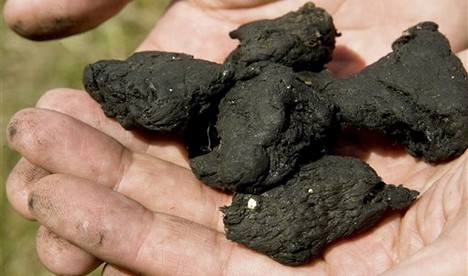
- Eating organic foods is key to optimal health. However, simply eating organic foods is not enough.
- They must be from reputable sources that are honest and have high standards of quality.
- The Center for Media and Democracy released a story in 2012 showing how Whole Foods did not have a strict policy when it came to food grown in sewage sludge.
- Regulations for certified organic foods are that food cannot be grown in sewage sludge, which includes waste and human excrement that is flushed down the drains, and sometimes used on crops. Sewage sludge is also referred to as “bio solids.”
- Since the story broke, many health activists have put pressure on Whole Foods, asking them to make sure that their suppliers label food grown in sewage sludge. In 2013, Whole Foods announced a new rating system for produce and flowers, which will include a ban on the use of bio solids. This way, when customers buy organic foods, they can be sure that it wasn’t grown in sewage sludge.
- Sewage sludge is made from all the waste flushed down drains and toilets, including residues from pharmaceutical drugs and other types of medical waste. The waste is drained of all its water content, and heated to remove bacteria. However, this heating process does not remove all dissolved heavy metals, chemicals and carcinogens such as flame-retardants.
- “While certain sanitation processes do decrease some health risks, chemicals such as PCBs, flame retardants, heavy metals, and endocrine disrupters – many of which are carcinogens – are not filtered out,” states the Center for Food Safety. “Instead, they accumulate in the soil and are taken up by crops, putting human health at risk.”
- In 2002, the Environmental Protection Agency released a statement saying: “EPA cannot assure the public that current land application practices [of sewage sludge] are protective of human health and the environment.”
- Whole Foods’ rating system is set to release in September 2014.
- Whole Foods revealed their three level rating system in their statement: “Whole Foods Market will present customers with a three-tier rating system and begin displaying ratings of “good,” “better” and “best” throughout produce and floral departments.”
- With the help of agricultural experts and suppliers, they will develop an index based on the following farming topics:
- Pest management, including prohibited and restricted pesticides
- Farmworker welfare
- Pollinator protection
- Water conservation and protection
- Soil health
- Ecosystems
- Biodiversity
- Waste, recycling and packaging
- Energy
- Climate
- This new rating system and ban of sewage sludge is a great step for Whole Foods to ensure that their organic foods are of the highest standard. Please contact Whole Foods to thank them for steps towards healthier organic foods, and ask them to release a statement that will make their sewage sludge policy public.
-
- Note: The content on our website is for educational purposes only. Please consult your health practitioner or a qualified expert before changing your diet.
-
- DON’T FORGET to sign up for our weekly newsletter to get our latest articles, updates, free recipes and giveaways.


















